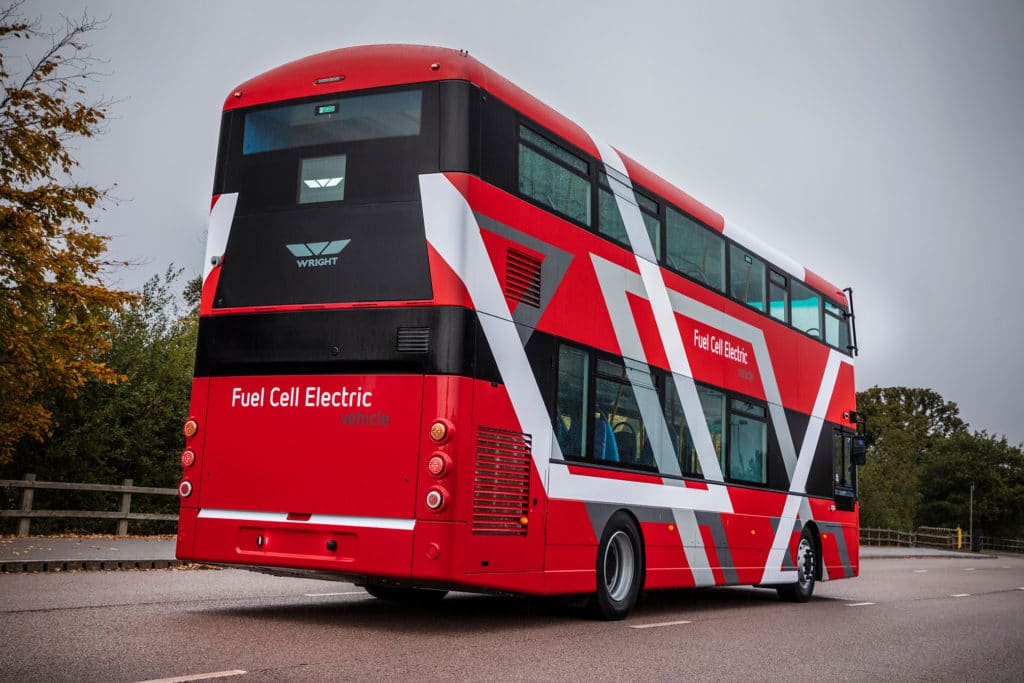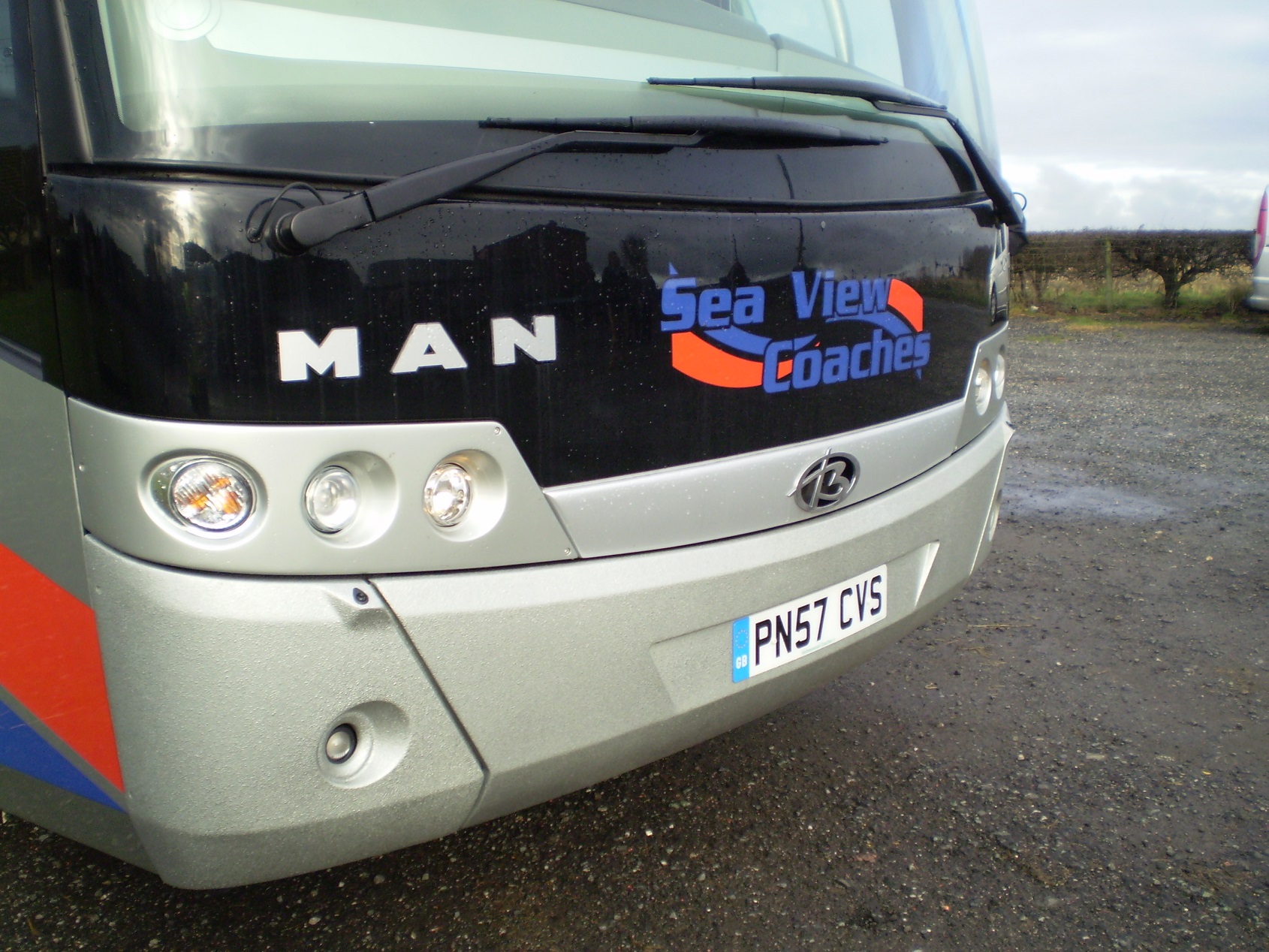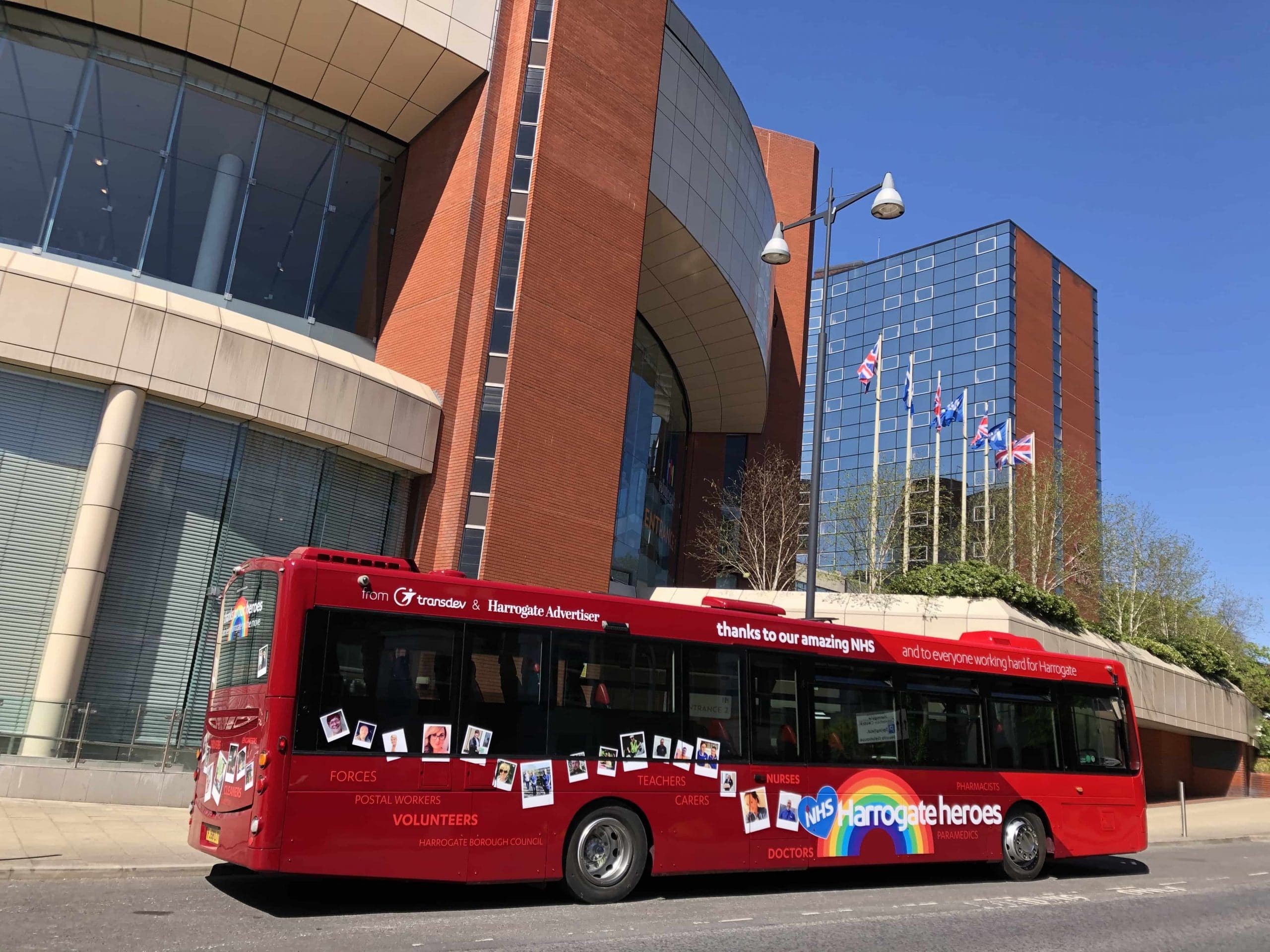Wrightbus owner Jo Bamford has unveiled fully costed plans for 3,000 hydrogen fuel cell-electric buses to be in service in the UK by 2024. All would be built at Wrightbus’s factory in Ballymena.
To facilitate his proposal, Mr Bamford has asked the government to set aside £500m of its £5bn funding package for buses outside London to “unlock the UK’s hydrogen industry.”
That would involve around £200m being spent on building hydrogen production facilities and zero-emission transport vehicles to take the fuel to depots, and £300m to subsidise the construction and purchase of the buses. Hydrogen would be supplied at below the price of diesel under the plans.
Mr Bamford adds that the blueprint – which has already been submitted to ministers – will boost UK manufacturing while improving air quality and reducing carbon emissions. It would also lead to a widespread adoption of hydrogen as a fuel in other heavy-duty road vehicles and trains, he says.
The proposed 3,000 buses represent around 10% of the UK’s fleet. Their production would lead to an increase in employee numbers at Wrightbus by “nearly 700%,” says Mr Bamford, who has confirmed that 20 hydrogen-powered double-deckers will be delivered to London later in 2020.
Mr Bamford, who also owns hydrogen producer Ryse, explains that the fuel used to power the proposed 3,000 hydrogen buses from Wrightbus will be “completely green.”
Ryse is in the process of building the UK’s first hydrogen production plant on the Kent coast. It will be powered by an offshore windfarm and use electrolysis to produce hydrogen from water. Mr Bamford plans four more hydrogen production plants by 2025 to fuel all 3,000 buses.



























